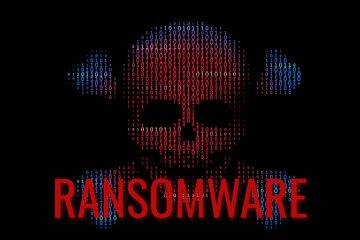Tutu Ransomware Encrypts Most Files

Tutu, a ransomware associated with the Dharma family, aims to block victims' access to their files through encryption. This malware employs a specific naming pattern for files and presents a pop-up window along with creating a "README!.txt" file containing a ransom message.
The ransomware alters filenames by appending the victim's ID, the email address "tutu@download_file," and the ".tutu" extension. For example, it transforms "1.jpg" into "1.jpg.id-9ECFA84E.[tutu@download_file].tutu," and "2.png" into "2.png.id-9ECFA84E.[tutu@download_file].tutu."
The ransom note asserts that the attackers have downloaded and encrypted all databases and personal data, threatening to publish and sell the information on darknet and hacker platforms. If the victim does not respond within a single day, the data is offered to competitors. The designated contact email is tutu@onionmail.org, emphasizing the need for a swift response.
To secure the release of the data, the ransom demands payment. It assures that upon payment, the data will be decrypted. The note explicitly warns against using third-party decryption software, asserting that only the attackers possess the necessary decryption keys. To provide some sort of assurance, the attackers offer a free test of the decryption key on a single file.
Tutu Ransom Note in Full
The complete text of the Tutu ransom note reads as follows:
We downloaded to our servers and encrypted all your databases and personal information!
If you do not write to us within 24 hours, we will start publishing and selling your data on the darknet on hacker sites and offer the information to your competitors
email us: tutu@onionmail.org YOUR ID -
If you haven't heard back within 24 hours, write to this email:tutu@onionmail.org
IMPORTANT INFORMATION!
Keep in mind that once your data appears on our leak site,it could be bought by your competitors at any second, so don't hesitate for a long time.The sooner you pay the ransom, the sooner your company will be safe.
Guarantee:If we don't provide you with a decryptor or delete your data after you pay,no one will pay us in the future. We value our reputation.
Guarantee key:To prove that the decryption key exists, we can test the file (not the database and backup) for free.
Do not try to decrypt your data using third party software, it may cause permanent data loss.
Don't go to recovery companies - they are essentially just middlemen.Decryption of your files with the help of third parties may cause increased price (they add their fee to our) we're the only ones who have the decryption keys.
How Can Ransomware Similar to Tutu Infect Your System?
Ransomware, including variants similar to Tutu, can infect a system through various methods. Here are common ways such ransomware may infiltrate your system:
Phishing Emails: Cybercriminals often use phishing emails to distribute ransomware. They may send seemingly legitimate emails containing malicious attachments or links. Once the user opens the attachment or clicks the link, the ransomware gets downloaded and executed on the system.
Malicious Websites: Visiting compromised or malicious websites can expose your system to ransomware. Drive-by downloads or exploiting vulnerabilities in browsers and plugins may occur when you land on such websites, leading to the installation of ransomware.
Exploiting Software Vulnerabilities: Ransomware can take advantage of security vulnerabilities in your operating system, software, or applications. Failure to regularly update and patch these components can leave your system susceptible to exploitation.
Malvertising: Cybercriminals may use malicious advertisements (malvertising) on legitimate websites to deliver ransomware. Clicking on these ads can trigger the download and installation of ransomware on your system.
Remote Desktop Protocol (RDP) Attacks: If your Remote Desktop connection is not adequately secured, attackers may exploit weak passwords or vulnerabilities in RDP to gain unauthorized access to your system and deploy ransomware.
Infected External Devices: Ransomware can spread through infected external devices such as USB drives or external hard drives. Plugging in an infected device to your system may lead to the ransomware spreading across your files.







